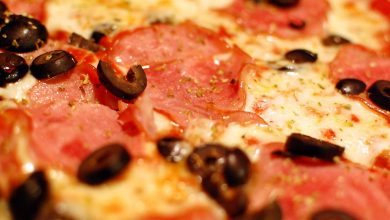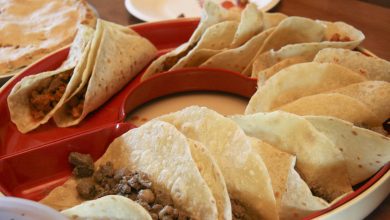Why This Mom Boycotts Organic and Will Never Shop at Whole Foods

When I was pregnant with my daughter, family and friends began encouraging me to buy organic produce. I was always a critical thinker, and I doubted the touted benefits of organic food. Still, to appease family, my husband and I started purchasing organic apples, strawberries, and some of the other fruits and vegetables from the Environmental Working Group’s “Dirty Dozen” list. Never mind that in my estimation, organic apples in our area are at least 50% more expensive than conventional.
Dirty Dozen? Nah, it’s fine
Long story short, I’m glad I know better now. I’m not a fan of getting bamboozled. I have no qualms about saying that the EWG “Dirty Dozen” list is unsubstantiated. There is no compelling reason to buy organic, yes, even the Dirty Dozen. The Farmer’s Daughter USA does an excellent job explaining why the scientific methodology behind the EWG list is flawed.
I will unabashedly say that “organic” food is the scam of the decade. We already know that organic food is no more nutritious than its conventional counterparts. You may be thinking, “Well, I buy organic to avoid toxic pesticides.” Alas, the idea that organic farming doesn’t use pesticides is brilliantly pervasive, and has likely helped the massive growth of the 63 billion dollar organic industry. In fact, organic farmers often have to use more so-called “natural” pesticides to achieve the same effect of synthetic pesticides. Just like conventional produce, organic produce shows pesticide residue in laboratory tests.
Isn’t boycotting a little extreme?
I didn’t previously go as far boycotting organic, but I can no longer handle the pesky cognitive dissonance. Even after I learned that there is no reason to buy organic, I’d purchase organic bananas if the conventional fruit was too green. I’d pick out a box of organic cookies if it was on sale. Quoth the Kavin, nevermore. Not only is there no tangible reason to buy organic, but it contributes to the sad weakness of America’s critical-thinking skills. The organic industry perpetuates the “natural is better” fallacy. Supporting this industry with my family’s money is like personally hindering scientific progress.
I’ve never set foot in a Whole Foods, and never will
If you shop at Whole Foods and care whatsoever what I think, don’t fret. I’ve heard from lots of people that it’s a really nice store with fancy cheeses, amazing bakery items, and a wide selection of ready-to-eat vegetarian options. That’s fine my friends, go nuts (do they have really good nuts, too?) In my opinion, Whole Foods helps promote the pretentious, judgmental false dichotomy that non-GMO and organic foods are somehow healthy and wholesome, while regular old food is junk. This company that grossed nearly 13 billion dollars in 2013 devotes an entire section of its website to how “Values Matter.” It is such an extensive section that I won’t give you a synopsis for now, but here’s a 60-second video. Gag me with an organic carrot:
Spare me the value judgement, Whole Foods. This type of value judgement emanates not just from Whole Foods, but from the larger organic movement over all. The Big Organic Behemoth’s rhetoric creates a deceptively discordant image of people who care about their health versus those buying conventional food. The tacit message is that those neglecting to buy organic are lazy, parsimonious, poor, or gluttonous. Perhaps the mom choosing conventional produce is selfish, and doesn’t care about her child’s well-being. This mom-shaming is far more ubiquitous than I ever believed.

These so-called “values” are completely ideological. Worse, Whole Foods is a leader in promoting the fallacy that GMOs should be avoided. As I’ve discussed extensively, the overwhelming scientific consensus agrees that GMOs are safe. Genetic modification has the potential to feed and nourish the world’s growing population in the most sustainable manner possible. I personally will no longer buy into the organic scam. The idea that moms like me don’t care about our kids is ludicrous. In fact, I WANT BETTER for my children. I want them to grow up knowing how to spend their money wisely. I want them to be able to smell a scam from a mile away. I want them to grow up in a more scientifically savvy country than America is today, and I’m doing my best to make that happen. My children love fruits and vegetables, but there is no way on this green, genetically dynamic earth that I’ll buy an organic fruit again. Except on the rarest of occasions like the other day when I bought organic apple juice by mistake. I’m a busy, sometimes frazzled woman.





I generally agree with you, however, when it comes to dairy and eggs, buying organic is they only way to get products that don’t come from animals that have been treated with antibiotics. I am really concerned about the overuse of antibiotics in farming and that leading to general worldwide pathogen resistance to them. As a result, we do buy organic milk and eggs. If there was a conventional alternative that didn’t use antibiotics I would gladly buy that.
I do love the wine selection at Whole Foods and the Hot Foods Bar, but I definitely agree with you on all points here. The organic food industry is creating fear and then profiting from it, has created a “class” of foods that is largely unaffordable for a large portion of our communities and then tells us that we are harming ourselves and our families if we don’t pay more for food that is not healthier or safer.
Steph, do you happen to have a Hy-Vee in town? One opened really close to us recently and they have awesome wine, cheese, and hot foods. I wouldn’t shop there regularly because it’s pricey, but it’s great on occasion. I have plenty of friends and family who shop at WF, no judgement. I may address the mutagenic breeding methods that are “allowed” in organic in a post some time.
I worked there all through college. Agree with everything you said, there are still some things worth getting; but the willful, smug ignorance kind of ruins it all. The last store I worked at felt like a cult. So creepy.
Excellent post. On top of everything else, it bugs me that a store called “Whole Foods” hardly has any actual whole foods. I mean, most of their floorspace is taken up by alternative medicine, cleanses, and processed foods. And organic potato chips are still potato chips. Jeez, why do people think they are eating healthy just because the package says “organic”.
Great article! I don’t go out of my way to buy organic. Generally I will go out of my way to grew some stuff myself (especially if it tastes better fresh off the plant) and/or to deal with more local farmers because they often use different varietals than I can get at the grocery store — again, about taste and freshness. While I’m not a big fan of the over-use of antibiotics, I hate the idea that a farmer can’t use antibiotics at all. Antibiotics exist for a reason, and I’d rather animals get treated appropriately when they’re ill. So…I’m on the fence about the whole “antibiotic-free” label as a result. I wish we could label some as a middle ground, where antibiotics were used if the animal actually needed them.
I agree with you on everything here and I loathe that stupid cartoon. As a mother I never load up my cart like that. In fact I hate soda/pop for personal reasons not because I’m afraid of the ingredients.
To assume that the well off are loading their kids up on garbage is so asinine since its the upper middle class and better who can afford and do shop at whole foods.
The middle class and poor shop at the regular grocery stores. I know. I fit into the category of middle class. To assume that because I refuse to buy expensive organic means I can afford shades and a fancy haircut is rude of them. I can choose between 48c/lb bananas or 1.67/lb organic scamananas.
These fear mongerers and conspiracy theorist are so hateful and rude. The little people like me can’t afford organic so I must be denying my child nutrients.
They can buy my food if they are so inclined or shut it.
BTW love this blog skepchick!
You know, that little political cartoon at the bottom there kinda forgot to not make organic and non-organic apples look exactly the same…
Thank you! You said most of the stuff I think when I think about buying organic. I can’t stand “The Organic Movement”. It’s like a cult. An article on Slate- “The Logical Failures of Food Fads” is very good at explaining why the narratives of food fads are like religious stories rather than scientific. I don’t want to buy organic either, because not only is it expensive but it feels like my money funding the ignorance and promoting ignorance. I hate the political cartoon too. It ignores the fact that poor families can’t even step into a Whole Foods and that these poorer families tend to be less- white. They also don’t know what a food desert is and how it affects the lower classes. Where I live it’s much cheaper to buy produce from street vendors than a supermarket. This produce looks better and you get more of it for less than the supermarkets. Screw that it’s not organic! People need and want this produce.